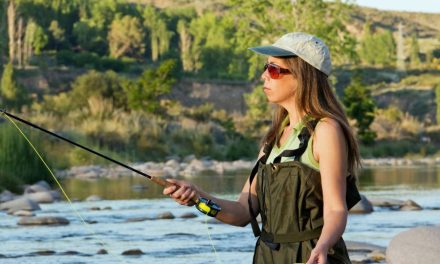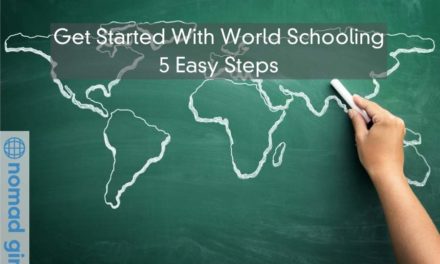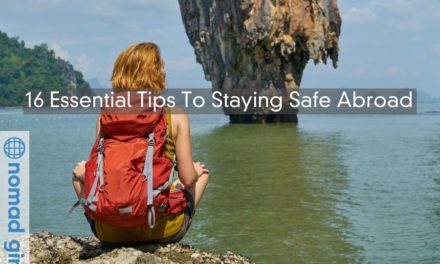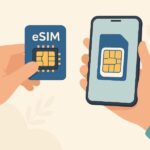For families embracing the digital nomad lifestyle, the freedom to explore the world while maintaining careers and personal goals is exhilarating. One pressing challenge that arises is ensuring consistent and quality education for children on the move. Traditional schooling models are not designed for a life of constant travel, making online schooling a practical and increasingly popular alternative.
With advancements in digital learning platforms and global connectivity, families no longer have to choose between adventure and academics. Instead, they can tap into various flexible educational options that cater to their unique lifestyles. This blog post explores different online schooling models available to digital nomad families, outlining their features, benefits, and considerations to help parents make informed decisions about their children’s education.
Virtual Public and Charter Schools
Virtual public and charter schools are ideal for families seeking a structured curriculum without the expense of private tuition. State education departments or accredited charter networks typically offer these programs and often align with national or regional academic standards.
This consistency can be a major plus for nomadic families who may need to return to a traditional school system at some point. The structure usually includes regular classes, attendance requirements, and teacher support, ensuring accountability and academic rigor.
They may require students to be based in a specific state or country for enrollment, which can be restrictive. Despite that, virtual charter schools remain a solid choice for families who want the familiarity of public education combined with the flexibility of remote learning.
A Flexible Alternative to Traditional Education
Online high schools offer a modern solution for students seeking flexibility, personalized pacing, and diverse course options outside the constraints of a traditional classroom. Whether accommodating a busy extracurricular schedule, health concerns, or unique learning styles, virtual schooling creates opportunities for academic success in a more adaptable setting, experts from https://svhs.co/ add.
Students can study from anywhere with internet access, interact with teachers and peers in digital forums, and often choose from a broader curriculum than local schools may offer. For many, online high schools provide the structure and support needed to thrive while balancing life’s other demands and responsibilities.
Homeschooling with Online Curriculum Providers
Homeschooling offers unmatched customization, allowing families to design a curriculum that fits their educational philosophy and lifestyle. Many digital nomad families opt for homeschooling using online curriculum providers such as Time4Learning, Khan Academy, or Oak Meadow. These platforms give parents access to ready-made lesson plans, assessments, and multimedia content, allowing them to either guide the learning themselves or supplement it with tutors.
Homeschooling requires a higher level of parental involvement, but it gives families the ability to integrate travel experiences into the curriculum—turning a hike through the Andes into a geography lesson or a visit to the Louvre into a deep dive into art history. For families who value hands-on learning and educational freedom, this approach can be incredibly rewarding.
Learning Through Life and Exploration
Unschooling takes the freedom of homeschooling a step further by removing formal curricula and allowing children to learn through natural life experiences. Digital nomad families who embrace unschooling often find that travel itself provides a rich and dynamic classroom. From navigating new languages to understanding different cultures and ecosystems, children can develop practical skills and global awareness organically.
While critics may argue that unschooling lacks structure, proponents believe it fosters independence, creativity, and a love for learning. Parents need to remain engaged and provide resources and opportunities that align with their child’s interests and developmental needs. Unschooling isn’t for everyone, but for adventurous, curious families, it can be a transformative educational path.

Hybrid Learning Models
Some digital nomad families take advantage of hybrid models that combine online coursework with in-person experiences. These might include attending international learning centers or joining temporary educational pods in popular nomad destinations like Bali or Portugal.
This approach provides the best of both worlds—structured academic learning along with social interaction and cultural immersion. Hybrid options are often organized through networks of traveling families who coordinate group activities, tutors, or co-ops. This model allows children to develop social skills and friendships while still receiving a flexible, mobile education. The success of hybrid learning relies heavily on location, community availability, and proactive planning, but it can offer a well-rounded and enriching school experience.
Accreditation and Transferability
Regardless of the schooling model chosen, accreditation and transferability are crucial considerations. Ensuring that your chosen program is accredited by a recognized body means that your child’s education will be accepted by colleges and universities, or should you return to traditional schooling later.
For families who move frequently across borders, it’s important to choose programs with international recognition or to maintain detailed academic records for future transitions. Parents should also understand how credits transfer between systems and what documentation may be required. Accreditation doesn’t just validate the quality of the education; it also provides peace of mind that your child won’t face unnecessary hurdles later in life due to schooling choices made on the road.
Tools and Technology for a Mobile Education
Reliable tech is the backbone of successful online schooling. Digital nomad families must invest in high-quality laptops or tablets, noise-canceling headphones, cloud storage, and mobile hotspots to stay connected in various environments. Learning management systems (LMS) like Google Classroom, Canvas, or Seesaw help students and parents stay organized and on track.
In addition to academic tools, there are also platforms for virtual extracurriculars, such as Outschool or TakeLessons, where students can explore music, coding, dance, and other interests from anywhere. Ensuring consistent internet access can be a challenge in remote locations, so having backup solutions—like offline materials or pre-downloaded lessons—can make a big difference. Tech-savvy families can seamlessly merge travel and learning with the right toolkit.
Building Community and Socialization on the Road
One common concern with online education for nomadic families is the lack of consistent peer interaction. Socialization is a vital part of child development, and it requires intentionality when living a mobile lifestyle. There are many ways to foster community on the go. Families can connect with local groups, join travel family meetups, or participate in virtual clubs and gaming communities.
Some platforms also host student forums or global discussion groups to encourage peer-to-peer learning and friendships. Travel itself offers unique social opportunities, exposing children to diverse people and customs. With effort and creativity, digital nomad families can ensure their children enjoy rich social lives even without a traditional classroom.
Online schooling has opened a world of possibilities for digital nomad families seeking both education and exploration. From public virtual schools to unschooling philosophies, there’s no one-size-fits-all solution—but rather a spectrum of options that can be tailored to each family’s values and goals.
As more families choose the road less traveled, these flexible and dynamic learning paths are becoming increasingly mainstream, proving that quality education doesn’t have to be tied to a single location. With thoughtful planning, the right resources, and a willingness to adapt, digital nomad families can empower their children with both academic success and worldly wisdom.


















